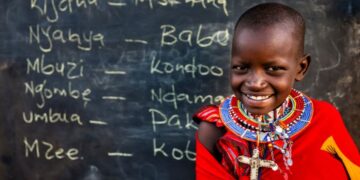In the course of fighting for independence, Africa has seen the rise of many political prisoners who rose to become national heroes and leaders of their countries and people.
While Nelson Mandela of South Africa may be the most popular of such men, many others have fought various colonial regimes, and in the end, they helped their countries and other African countries attain independence.
Here are political prisoners in Africa who later became heroes
1. Nelson Mandela
Nelson Mandela is not just a national hero but a global icon. The South African anti-apartheid leader spent over 27 years in prison, where he was first sentenced to 5 years before he was later given a life sentence in 1964 by the apartheid regime. A symbol of resistance, he was locked up on charges of sabotage and conspiracy to overthrow the government.
He regained his freedom with the end of apartheid in 1991, and he became the first president of South Africa from 1994 to 1999, laying the foundation for a free South Africa.
Madiba lived to be 95 before his death in December 2013.
2. Agostinho Neto
António Agostinho Neto was the leader of the Popular Movement for the Liberation of Angola in the fight for the country’s independence. He was arrested several times, including in 1951, 1952, 1955, and 1960, and was exiled at one point.
Thanks to all his efforts, Neto became the first president of Angola and served from 1975 to 1979 when he died.
3. Kwame Nkrumah
Kwame Nkurmah was a strong advocate of Pan-Africanism. The founding member of the Organization of African Union, which is now known as the African Union (AU), he was arrested numerous times for his pan-African activities and his urge to free Africa from colonial rule. In 1950, he was arrested and sentenced to three years in prison for leading a strike action that later turned violent in the Gold Coast.
Nkrumah led Ghana to independence in 1957 and became the first Prime Minister until 1960 when he took office as the first president of Ghana. He was in power until 1966 when he was toppled through a coup that brought in Joseph Arthur Ankrah as president.
4. Patrice Lumumba
Patrice Lumumba was only 35 years old when he died, but he still stands tall among other African heroes. The Congolese independence leader and pan-Africanist was at the forefront of ensuring that the Democratic Republic of Congo gained its independence from Belgium.
He was arrested in 1959 on charges of inciting a riot against the colonial government. He was tried and sent to prison, where he was expected to spend six months behind bars. Even though he was in prison, the Mouvement National Congolais (MNC), which he founded, won the Congo local elections, and that put pressure on Belgium to release him.
Patrice Lumumba’s efforts paid off in 1960 when his country became independent and he emerged as the first Prime Minister of the Democratic Republic of the Congo.
He was in power for only three months before his government was toppled, and he was killed by a joint force of Congolese politicians and Belgians. At the time of his death, it was claimed that governments of Belgium, the United States, and the United Kingdom were all targeting him.
5. Jomo Kenyatta
Jomo Kenyatta was a Kenyan anti-colonial activist who fought the British colonialist regime in his country and some other parts of Africa.
His activities led to his arrest alongside others, including Bildad Kaggia and Kung’u Karumba, and he was charged with masterminding the Mau Mau uprising, which was an anti-colonialist war championed by the Kenya Land and Freedom Army (KLFA), also known as the Mau Mau.
He remained in prison from 1952 until 1959, when he was exiled to Lokitaung also in Kneya. In 1964, Jomo Kenyatta became the first president of Kenya until he died in 1978.
See Also:
6. Nnamdi Azikiwe
Zik of Africa was a strong and important voice in the fight towards ending colonialism in Nigeria and Africa. His attacks on the colonial government in Africa, accusing them of exploiting workers, his newspaper, the West African Pilot was suspended in 1945.
The inspiration behind the Zikist Movement, he was imprisoned as early as the 1930s for 6 months on charges of sedition over a piece he wrote challenging imperialism in West Africa. Azikiwe made it clear that he was ready to pay the ultimate price for his fight against imperialism. Fortunately, he was later acquitted of the crime and was freed by the Supreme West African Court of Appeal.
Nnamdi Azikiwe became Nigeria’s first president from 1963 to 1966.
7. Robert Mugabe
Although the latter years of Robert Mugabe defined him as a rather controversial leader who refused to relinquish power, he was a revolutionary leader and one of the frontline individuals in the fight for the independence of African states.
Riding on the Marxist ideology, he was sent to prison on charges of sedition for his nationalist activities, and he remained behind bars from 1964 to 1974. After his release, he was forced to flee from the country as he continued fighting for the independence of Zimbabwe.
He became the first prime minister of Zimbabwe in 1980, and in 1987, he became the country’s second president. He ruled until he was forced out of power in 2017, making him one of the longest-serving presidents in African history.




















